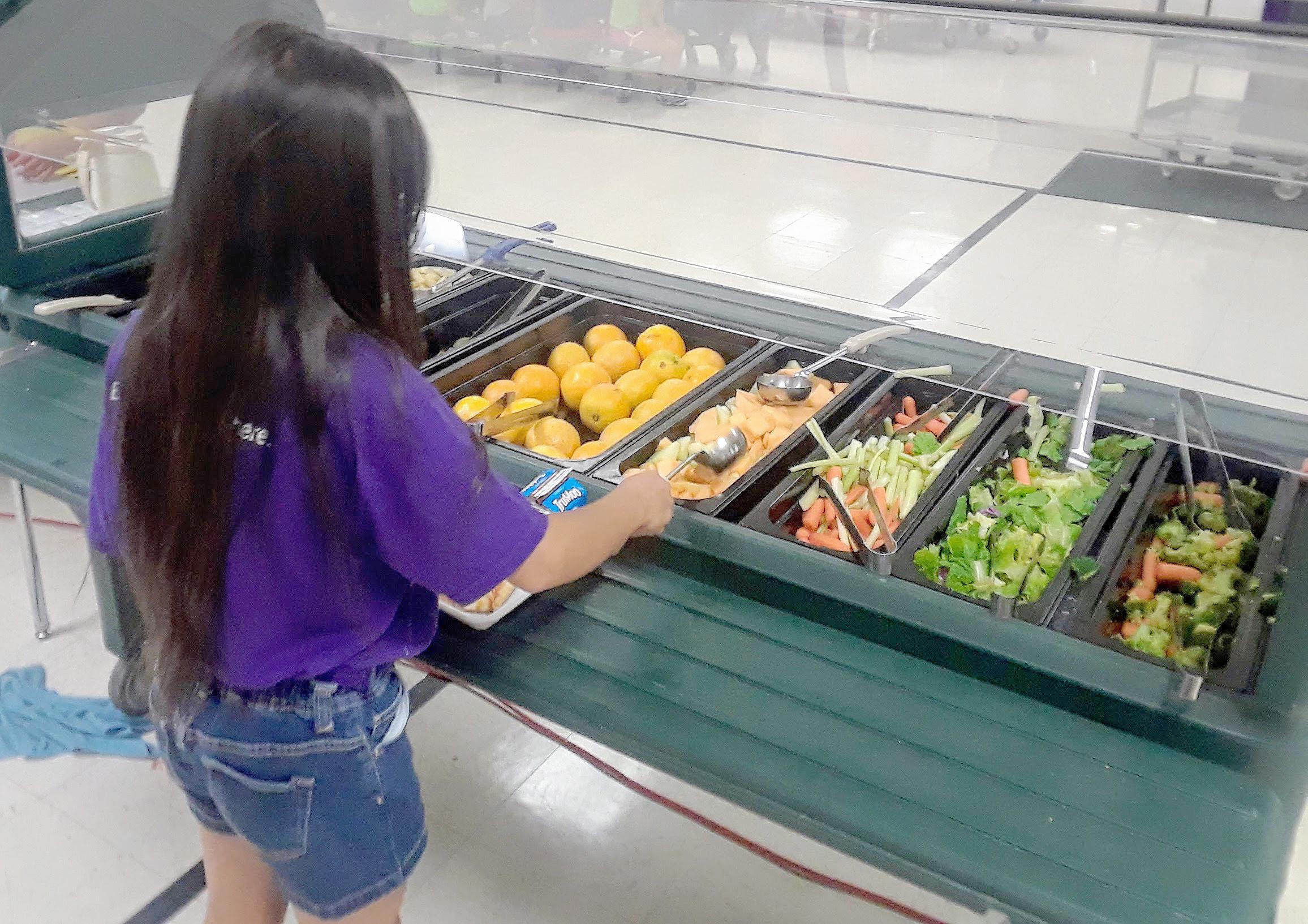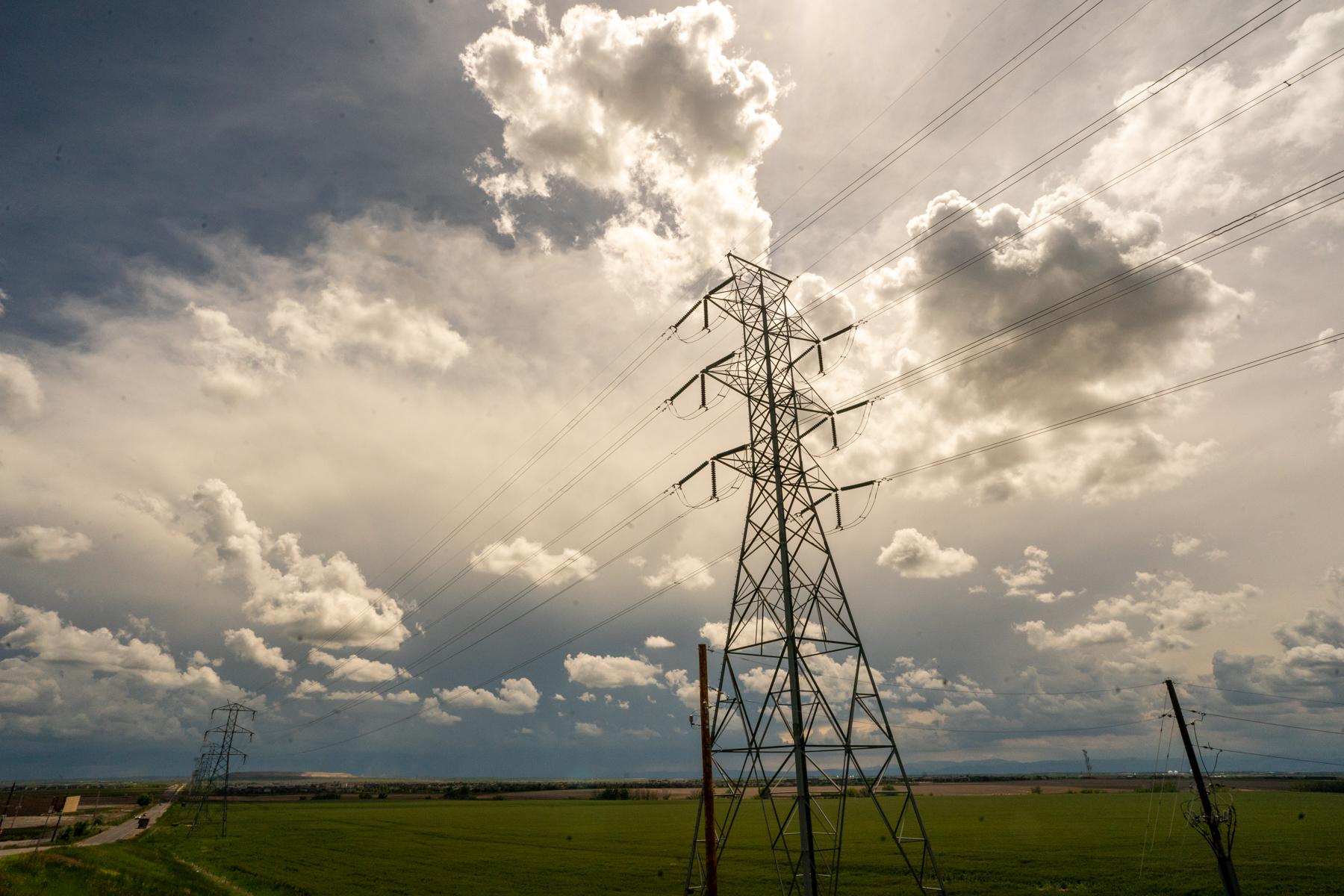
Denver Public Schools students who struggled to pay on their meal account used to get an "alternative" lunch,” things like a cheese sandwich. Critics say that policy left those kids hungry and embarrassed. After a successful campaign to offset all lunch debt in the district, Superintendent Tom Boasberg tells Colorado Matters that every kid in the system will now get a full lunch,no matter what. Boasberg also discussed the impact President Trump's decision on DACA could have on students and teachers, and the status of the current teachers contract.
Interview Highlights
Boasberg on why some students can't pay:
Every kid has a different story. In some cases, their parents didn’t fill out the form properly; maybe you have a kid who’s new to Denver, maybe there is a student whose family has really gotten into difficult financial situations and so there’s series of different reasons. In some cases, it’s also with some of our immigrant families, right. There is such fear now in the community because of what the president is doing and what we’re hearing out of Washington that’s causing such fear in immigrant communities that, in some cases, our immigrant families are reluctant to sign up for programs like this. We never, ever ask for immigration status in Denver; it’s actually against the United States Constitution, according to constitutional law, the decision of the Supreme Court, but a part of this is fear.
On why DSP is changing its policy:
I think it’s part of our fundamental commitment to the whole child. That we know unless our kids are healthy, they’re eating healthy meals, they’re getting exercise, they’re socially and emotionally supported – unless we’re supporting our kids as whole children, they’re not going to reach their potential. It’s important to note here that the vast majority of our schoolchildren are eligible for free meals courtesy of the Federal School Lunch Program. It is important that every family that is eligible does sign up for that, but we’re committed to make sure, again, that every child who comes to us for breakfast because actually most – we serve most children breakfast every day in our schools as well – gets a healthy breakfast and a healthy lunch every day.
Interview Transcript
Ryan Warner: This is Colorado Matters from CPR News. I’m Ryan Warner. Let’s take a step into the school lunch line. Girl: I eat salad and apple and orange. RW: This is the cafeteria at the Denver Center for International Studies. You probably know how this works; students grab a tray, pick their items. Theresa Hafner: They get choices of hot food, vegetarian food, sandwiches, then they go through a salad bar where they can make their own choices of fresh fruits and vegetables. RW: Theresa Hafner leads Food & Nutrition Services for Denver Public Schools. TH: When we feel they eat healthy foods, then they’re able to learn better and they’re not worried about their tummies. They’re thinking about their lessons. RW: At the end of the line, kids punch in an ID number. Girl: Two, four, enter! RW: The number links to a paid account. Last year, if families fell behind on their payments, kids would eventually get an alternative lunch, something bare bones like cheese sandwiches or graham crackers and milk. Critics said the meals left kids embarrassed and hungry. Well this year, DPS has taken shame off the menu. The district has committed to serve a full lunch to every kid every day no matter what. Superintendent Tom Boasberg joins me from his office to talk about that and some other issues facing the district. Welcome to the program. Tom Boasberg: Thanks very much for having me. RW: Tell me more about why DPS decided to change this alternative lunch policy. TB: I think it’s part of our fundamental commitment to the whole child. That we know unless our kids are healthy, they’re eating healthy meals, they’re getting exercise, they’re socially and emotionally supported – unless we’re supporting our kids as whole children, they’re not going to reach their potential. It’s important to note here that the vast majority of our schoolchildren are eligible for free meals courtesy of the Federal School Lunch Program. It is important that every family that is eligible does sign up for that, but we’re committed to make sure, again, that every child who comes to us for breakfast because actually most – we serve most children breakfast every day in our schools as well – gets a healthy breakfast and a healthy lunch every day. RW: The nonprofit KidsGiving365 raised more than $17,000 to erase school lunch debt this year. Would you have made this decision without that money because it’s a financial consideration, too? TB: It is and I can’t tell you how much I appreciate the students who led the KidsGiving and generated that money and really pushed this as an important area. What a fantastic example of student leadership and I think they really made – put in very clear terms to us: we need to make sure we’re feeding every kid every day. We can’t be in a situation where a family, for example, that doesn’t qualify for free meals or for whatever reason, hasn’t signed up for it, where that child does not get lunch. RW: DPS has said that rules around the National School Lunch Program were part of the reason for this alternative lunch policy, that sort of bare-bones lunch. Can you explain that? TB: Yeah, they are. You need to make sure that you’re following their rules, which define who is eligible for free lunches, who’s eligible for subsidized price lunches and you’re not supposed to subsidized someone who’s not eligible with money from someone who is, and understandably so. So in order to do this, we’ve had to essentially reach into a different pocket of funds. It’s really – but at the end of the day, it’s just really not that much money and I think the principle at stake here of ensuring that kids are fed, are healthy, is more important than the dollars at stake here. RW: What’s your understanding for why DPS students went into debt for school lunches? I mean is it that they can’t afford to pay, is it that parents forget? Did you have some sense of that? TB: Every kid has a different story. In some cases, their parents didn’t fill out the form properly; maybe you have a kid who’s new to Denver, maybe there is a student whose family has really gotten into difficult financial situations and so there’s series of different reasons. In some cases, it’s also with some of our immigrant families, right. There is such fear now in the community because of what the president is doing and what we’re hearing out of Washington that’s causing such fear in immigrant communities that, in some cases, our immigrant families are reluctant to sign up for programs like this. We never, ever ask for immigration status in Denver; it’s actually against the United States Constitution, according to constitutional law, the decision of the Supreme Court, but a part of this is fear. RW: New Mexico banned alternative lunches this year. Do you see the need for a similar statewide solution? And I’ll just mention that Adams and Boulder Valley school districts already provided full lunches, even when families had overdue lunch balances, according to 9News. So there could be something of a patchwork without a state law, I suppose. TB: Yeah, I think it would be great to have consistency where every kid is getting fed every day. I want to be careful about saying, “Just because we do something, someone else should do it.” RW: You would not call, though, for a statewide law yourself? TB: We would certainly support one. RW: You would? OK. I would like to wrap up with negotiations that themselves wrapped up. Between the district and its teacher’s union, you reached a five-year contract agreement right before the Labor Day holiday weekend. All teachers, as I understand, will get a $1,400 boost in pay, in part because it’s getting so expensive to live in Denver. A big win for the union was a joint committee to review the teacher evaluation system. How do you think students and parents benefit from this five-year agreement? TB: Thank you. I think they’ll benefit in a number of ways. First of all, to have a five-year agreement and having that stability, I think, is very positive. I’m very grateful, the partnership that we have with our Teachers' Association that has led to that five-year agreement. One of the most important aspects of the agreement is to target more money to our higher needs schools. One of the critical things that we have to do to provide the kind of equity of opportunity in our city, in our educational system, is to ensure we have our strongest teachers teaching in our highest poverty schools with our highest needs kids, and one of the key parts of this agreement is that opportunity to provide a greater salary increase for our teachers who are teaching our higher poverty schools. Secondly, one of the center parts of the agreement is our agreement to form a leadership taskforce on the whole child, to work very closely with our teachers and community members, to ensure we’re having the strongest possible supports for the whole child. RW: What does that mean, “whole child”? I think of – I don’t think of a headless child, for instance. TB: No. When we talk about the whole child, it really means celebrating all the aspects of a young person: their academic abilities but also their creative opportunities in arts and music, their physical health in sports, their social and emotional health through counseling. In some cases, their physical health through nursing or mental health. They have trusting relationships, they’re developing a level of emotional intelligence, which is such an important part of growing up and being not just a successful young person but a successful adult. RW: I know that the union wanted more of that written into the contract and to have more teeth, in a way. What do you say? TB: Yeah. So that was, again, one of the compromises we reached. It is written into the contract that we will have this empowered taskforce. RW: Does it have enough teeth? Lots of taskforces get started and nothing happens out of them. TB: Yeah, I think it has – it does and I think most of all, it has momentum, and again, I think the way that you impact positive change is to really bring people together around a common vision rather than necessarily giving people a litany of rules that come from the center that people really spend most of their time figuring out how they’re going to try and avoid and evade and get around. RW: Superintendent, thank you for being with us. TB: Thanks very much for the opportunity. |








